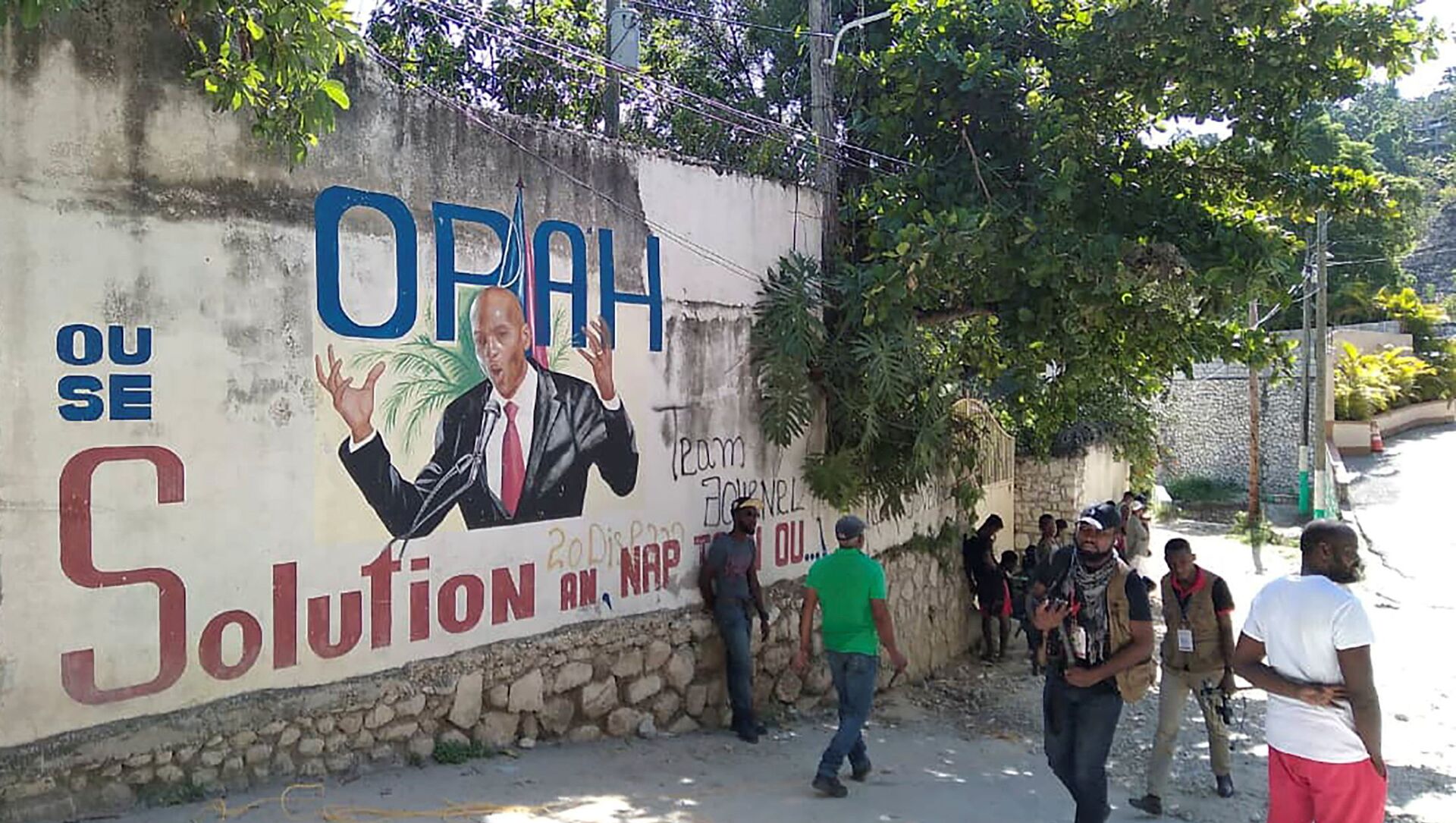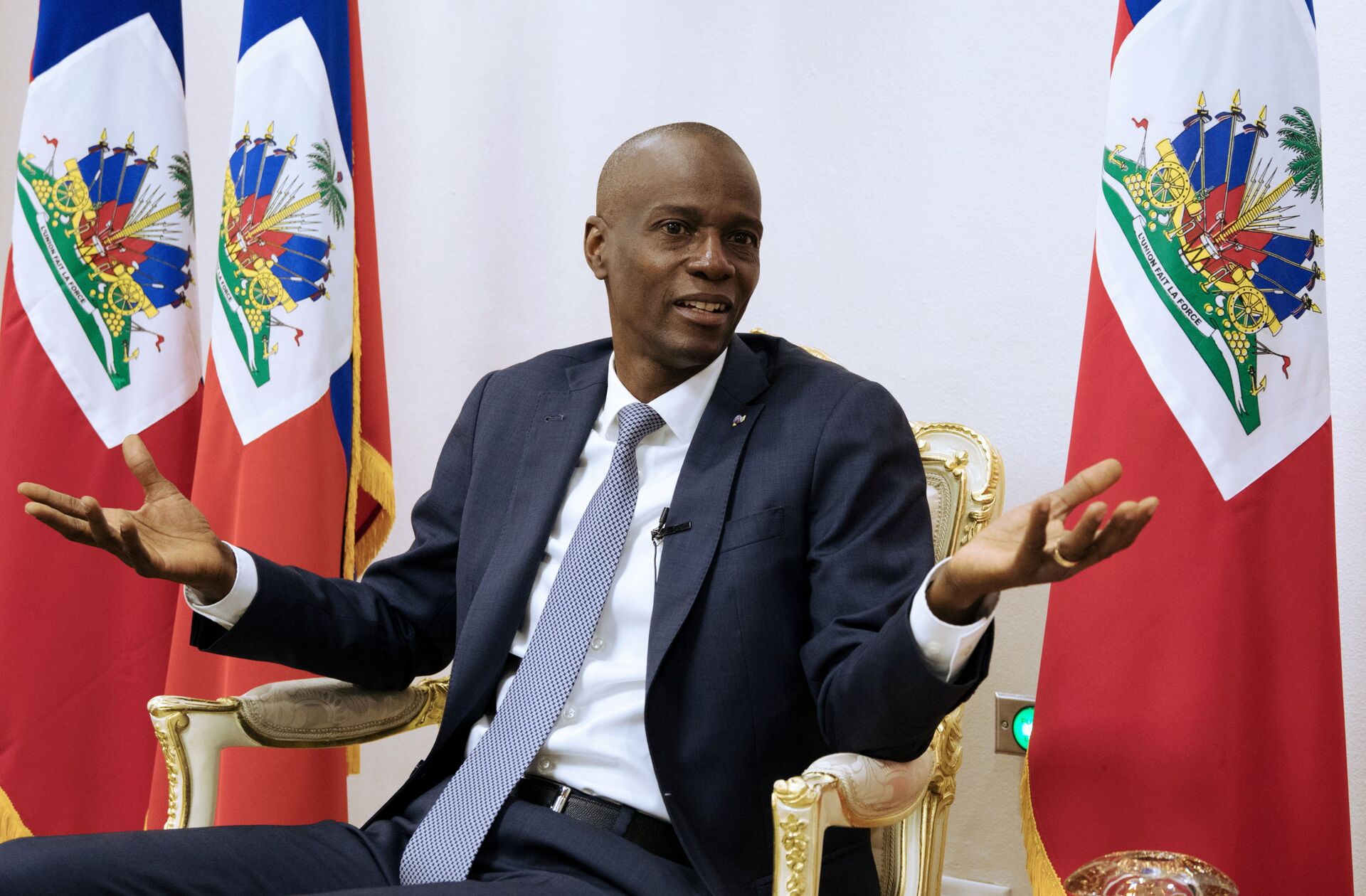From Victim to Villain: Mixed Feelings in Haiti After President's Assassination
13:02 GMT 08.07.2021 (Updated: 14:09 GMT 14.02.2023)

© REUTERS / STRINGER
Subscribe
MOSCOW (Sputnik) - The assassination of Haitian President Jovenel Moise, fatally shot in an overnight attack on 7 July, has reignited deep-seated safety concerns among people and caused mixed feelings in the Caribbean nation, going through a severe political and economic crisis.
While some consider the assassinated president a victim of his environment, others blame him for the hardships that the nation has had to endure. The aftermath of the assassination exposed Haiti as a very divided and impoverished country in need of profound change.
Haitian social activist Wendy Osirus, the founder of the Movement for Human Rights, Peace and Justice, thinks this tragedy is going to make Moise a martyr in the eyes of people.
"With his death, Moise ends up becoming a martyr, and this makes people have negative feelings about everything that aims to criticise the murdered president because they have already started to see him as a victim. The population is shocked, confused, sad, outraged, like a group of sheep without a shepherd", Osirus told Sputnik.
On the other hand, many Haitians are convinced that it was the political mistakes of Moise that generated chaos in the country, an opinion shared by the Haitian ethnologist, writer, and university professor Elince Bastien.
"Nobody is celebrating the death of the president because nobody enjoys the death of a human being, but if Moise were alive, he would have to admit that he made many mistakes, and it cannot be ignored that the Haitian people do not forget the history", Bastien told Sputnik.
Haiti has been dealing with institutional controversies since last year, and Moise only worsened the situation, leading the country into chaos, the expert argued.

FILE PHOTO: Haiti's President Jovenel Moise speaks during an interview with Reuters at the National Palace of Port-au-Prince, Haiti January 11, 2020. REUTERS/Valerie Baeriswyl/File Photo
© REUTERS / Valerie Baeriswyl
Moise, who had never before held any political office, became president on 7 February 2017, after a protracted and contested election. The opposition said his term in office should have ended in February, but Moise said that because it took a year for him officially to take office, his term should have been extended till 2022.
"During his presidency, Moise abolished the parliament and ruled the country through decrees; two parliamentary elections that were to take place during his term were not organised, and this caused discontent of his opponents, who disagree with his decisions", Bastien said.
Some people believe that Moise's administration supported local gangs that organised massacres in the country, the expert added.
"There were also other accusations according to which the president was an organiser of gangs, and it is very sad when you hear such things about a president who came out of the people. And we thought he was going to work for people", Bastien said.
'Living in Haiti Becomes Difficult Every Day'
Several inquiries about Moise by rights groups and researchers found that his administration allegedly took part in state-sponsored massacres by providing gangs with money, weapons, police uniforms, and government vehicles, all of which were then used in three large attacks in Haiti's capital of Port-au-Prince between 2018 and 2020.
"Gangs decide when people can go by and not", former police officer and current leader of the G9 gang, Jimmy "Barbeque" Cherizier, said.
He believes that no one in Haiti can predict what is going to happen next as the degree of social and political instability is continuously increasing.
"The situation is complicated. No one trusts anyone. That's the reality today. Everybody stays in their corner to survive. I call this organised chaos. Everybody worries about what's going to happen next. They're in wait-and-see mode", Cherizier said.
Meanwhile, violence has been spiraling in Haiti since February 2019, when a series of demonstrations took place to demand that Moise resign. The president's opponents counted him guilty of depreciation of the local currency, Haitian gourde, as well as growing crime and violence.
"Living in Haiti becomes difficult every day. You're always watching your back because you don't know if you'll be next. It's a very stressful situation. There's a saying that the life expectancy in Haiti is 24 hours when you go out, especially in the projects. If you're well known or rich, you become a target", a 40-year-old Haitian native and resident of Port-au-Prince, who preferred to stay anonymous, told Sputnik.
Haiti has been struggling with economic problems for years, and the COVID-19 pandemic only aggravated the crisis. The World Bank estimated the country's poverty rate at nearly 60% in 2020, which means that almost no progress had been made upon the 58.5% in 2012.
